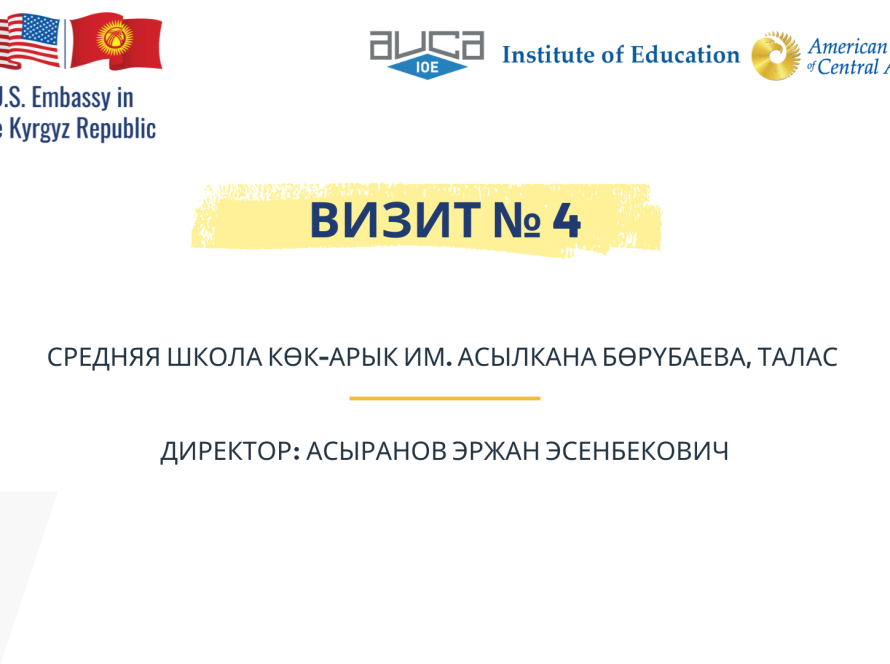Post-Visit Report: Insights from School Visits – Manifesting Learning and Collaborative Practices
Introduction
On March 7, 2025, School No. 3 named after M.V. Lomonosov in Osh hosted the eighth reciprocal visit of the FORUM 2.0 project. The event convened school directors from northern and southern regions, including Dinara Almamatova, Azim Jenish uulu, and Elmira Konokbaeva. Facilitated by the FORUM Project Manager Aigul Karimova and supported by the host school’s administration and teaching team, the visit focused on collaborative leadership exchange, reflective dialogue, and immersive learning.
School Highlights
The visit began with a warm welcome and introduction to the school through a video and an interactive tour. Guests attended open lessons in 1st-grade classrooms—observing sessions on early math problem solving and integrative learning themes. Participants noted the high quality of student engagement and teacher facilitation, along with the school’s structured approach to inclusive learning.
A key element of the visit was the group reflection session following the viewing of leadership videos from visiting directors. Discussions addressed both shared educational challenges and school-specific innovations. The day concluded with a tour of the Sulaiman-Too historical complex, reinforcing the importance of connecting education with cultural identity.
Discussion Highlights and Best Practices
Several strategies stood out during the visit and were recognized as replicable across contexts:
Strong Leadership and Administrative Synergy: Participants highlighted the school’s well-coordinated leadership team and effective internal communication. Administrative and teaching staff demonstrated shared goals and mutual trust.
Meaningful Student Self-Governance: The school had an active student parliament and well-structured extracurricular programming that fostered student voice and accountability.
Innovative Resource Management: Examples included creative cost-saving solutions like reflective heating strategies and project-based learning initiatives that link theory with real-life applications.
Engaging Physical Environment: Participants observed well-maintained and thematically organized school spaces, decorated in ways that support learning and student wellbeing.
Community and City-Level Collaboration: The school maintains strong ties with local government, and regularly participates in citywide academic and cultural events, positioning itself as both an educational and civic hub.
Reflections from Participants
Visiting directors described the experience as energizing and highly relevant. One participant noted:
“This visit showed us that thoughtful leadership, regardless of region, can bring remarkable results when combined with care for students, creative thinking, and strategic partnerships.”
Participants emphasized that seeing the operational culture firsthand gave them a deeper understanding of how even small interventions can yield lasting improvements in learning environments.
Conclusion
The visit to School No. 3 in Osh offered a compelling look into how leadership, instructional quality, and community collaboration can align to create a thriving school culture. As the FORUM 2.0 project nears its conclusion, this visit reaffirmed the value of mutual learning across geographic and institutional contexts. School directors left with renewed inspiration—and practical strategies they are already planning to implement.



